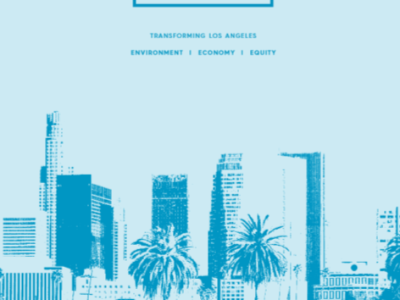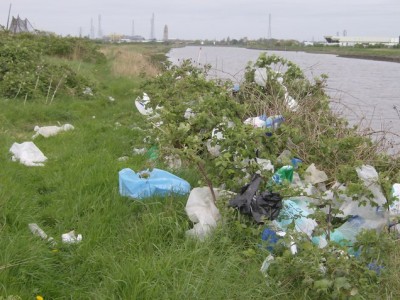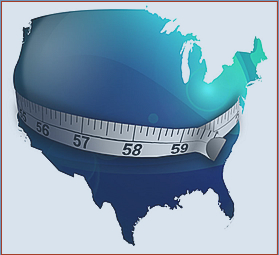Green Living
Flame Retardants, Furniture, and Polar Bears
One woman’s search for a toxics-free couch in California
A year and a half ago, I found myself in a position that has caused so many people to rethink the world around them: impending parenthood. One of the many changes I decided to make in advance of welcoming our little bundle of joy was to procure a couch without flame retardants. Flame retardants have …
Continue reading “Flame Retardants, Furniture, and Polar Bears”
CONTINUE READINGImmanuel Kant and the California Water Crisis
How Should Individuals Decide How Much Water to Use?
Last week’s rain in southern California will hardly make a dent in the state’s devastating drought, and it raises an important question for individual consumers: exactly how should we decide how much water to use? There are obvious things: don’t hose down your driveway, take shorter showers, do full loads in the washer. But there …
Continue reading “Immanuel Kant and the California Water Crisis”
CONTINUE READINGLos Angeles Releases First-Ever Urban Sustainability “pLAn”
Envisioning greener energy, cleaner air, and reduced consumption in LA by 2035
Perhaps no metropolis is better positioned than Los Angeles to pioneer ground-breaking environmental initiatives. As the second-largest U.S. city, and with the country’s largest municipally owned utility, a world-class research university–UCLA, and the blessings of abundant sunshine and a temperate Mediterranean climate, Los Angeles could serve as a global model for urban sustainability. Today, the …
Continue reading “Los Angeles Releases First-Ever Urban Sustainability “pLAn””
CONTINUE READINGReferendum Politics: California’s Pioneering Plastic Bag Ban on Hold
Out-of-State Bag Manufacturers Succeed in Qualifying Referendum Measure for 2016 Ballot
California’s recently-legislated ban on disposable plastic bans–the first in the nation–will not take effect on July 1, 2015 as the new law mandates. That’s because industry opponents of the legislation have qualified for the November 2016 election a referendum measure that seeks to repeal the new law. Last fall I wrote on this site about …
Continue reading “Referendum Politics: California’s Pioneering Plastic Bag Ban on Hold”
CONTINUE READINGThe Climate-Nutrition Nexus
The advisory panel on nutrition ruffled some congressional feathers by taking environmental impacts into account. The panel’s report concludes that “a dietary pattern that is higher in plant-based foods, such as vegetables, fruits, whole grains, legumes, nuts, and seeds, and lower in animal-based foods is more health promoting and is associated with lesser environmental impact than is …
Continue reading “The Climate-Nutrition Nexus”
CONTINUE READINGThe Dietary Supplement Scandal
There are 65,000 dietary supplements on the market, and almost half the population uses at least one of them. Americans spent $13 billion on dietary supplements last year, according to the Washington Post. There are disturbing indications that nearly all that money is wasted — or to put it more bluntly, that the industry is essentially …
Continue reading “The Dietary Supplement Scandal”
CONTINUE READINGCan We Control Climate Change and Still Have Economic Growth? (Part II)
It’s all in the timing.
Yesterday’s post discussed economic growth and how it relates in principle to carbon emissions. Basically, economic growth just means that people will be getting goods and services they prefer over today’s goods and service. There’s no intrinsic reason why the “better” bundle necessarily has to involve more carbon. In fact, it could involve a lot less carbon. …
Continue reading “Can We Control Climate Change and Still Have Economic Growth? (Part II)”
CONTINUE READINGCalifornia Becomes First State to Ban Disposable Plastic Bags
Other Single-Use Shopping Bags Also Restricted Under New Law
California has become the first state in the nation to ban major retail stores from providing single-use carryout plastic bags to their customers. The new legislation similarly prohibits stores from selling or distributing recycled paper bags unless the store makes such bags available for purchase for no less than 10 cents per bag. The new law, …
Continue reading “California Becomes First State to Ban Disposable Plastic Bags”
CONTINUE READINGThe Greening of Post-Apocalypticism?
David Mitchell’s Masterpiece Provides a Perfect Epigraph — and Epitaph — for Environmentalism
A few weeks ago, I finished reading David Mitchell’s magnificent Cloud Atlas, a few months after seeing the still-excellent but-not-as-magnificent movie based upon it. The novel comprises a series of linked stories ranging from the mid-19th century to a post-apocalyptic future 300 years in the future. And that last story, profound and heartbreaking, tells us …
Continue reading “The Greening of Post-Apocalypticism?”
CONTINUE READINGThe State(s) of Obesity
There are big differences between states, but this really is a national epidemic.
State of Obesity, a joint project of the Trust for America’s Future and the Robert Wood Johnson Foundation, has released a fascinating report about adult obesity. There are large national disparities. The obesity rate is over 35% in West Virginia and Mississippi, but only 21% in Colorado. Despite these disparities, obesity rates have grown everywhere since 1990, …
Continue reading “The State(s) of Obesity”
CONTINUE READING












